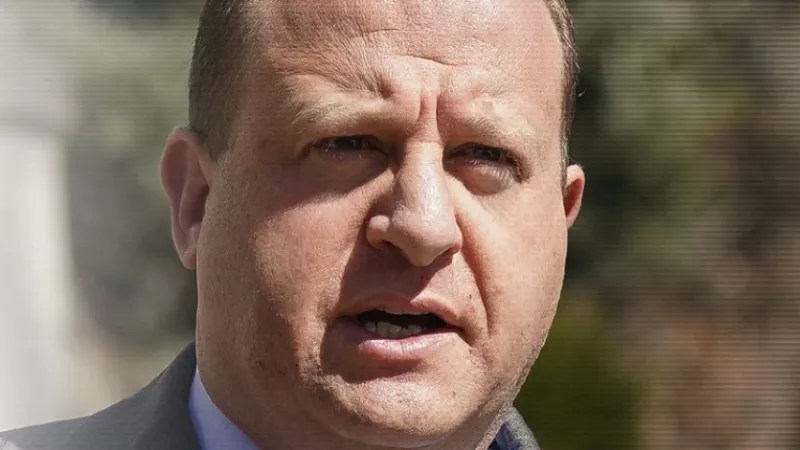
ABC via Twitter

Audio By Carbonatix
The Colorado Department of Public Health and Environment has confirmed only two cases of the Omicron variant related to COVID-19 in the state; they involve individuals from Arapahoe and Boulder counties who traveled internationally. But at a December 7 press conference, Governor Jared Polis and CDPHE lead epidemiologist Dr. Rachel Herlihy revealed that Omicron has now been found in Boulder’s wastewater surveillance system.
This discovery suggests “more than one” Omicron case in Boulder, said Herlihy, adding that if this hypothesis is accurate, there’s likely a “low level of community transmission” in which the virus has been passed from person to person.
Colorado was the third state in the U.S. to register an Omicron case, as Polis discussed during a December 5 television appearance on ABC’s This Week With George Stephanopoulos (click to see his interview with journalist Martha Raddatz). But rather than start today’s press conference with a discussion of Omicron, he spoke more generally about the impact of the disease.
Polis noted that 9,652 people have died from COVID-19 in Colorado, and 1,419 people are currently hospitalized for treatment related to the disease – an increase of forty over the day before. While there’s no “clear pattern” regarding data because it’s been “bouncing up and down,” he said, what’s undeniable is that vaccinations greatly reduce the risk of hospitalizations or fatalities. Currently, only 16 percent of patients receiving care for COVID at a Colorado medical facility have been vaccinated, with the remaining 83-plus percent inoculation-free.
After sharing this information, Polis handed off to Herlihy, who got into more details about Omicron. Early data out of southern Africa, where the virus was first detected, implies that it’s potentially more transmissible than previous strains, she said, but the effects may be milder than those associated with the Delta variant, which continues to be by far the most dominant version of COVID-19 in Colorado. As a result, she suggested, the detection of Omicron by the Boulder wastewater surveillance system shouldn’t require a major change of behavior in that city or others that may soon have cases of their own. Herlihy encouraged vaccinations, booster shots for those previously immunized, mask usage in indoor public places and the avoidance of large gatherings as the best ways to protect against any known form of the disease.
Returning to the podium, Polis invited questions – and several of them dealt with the situation in Boulder. The wastewater surveillance system isn’t capable of quantifying the number of residents who might be infected with Omicron, Herlihy said, but officials will be closely watching test results in the area to determine if more cases are found. She also acknowledged that hospitalizations have been ticking up in recent days and surmised that the trend may be related to gatherings over the recent Thanksgiving weekend.
Cases rose, too, she added, before expressing her hope that “the numbers will turn a corner and go back down again.”